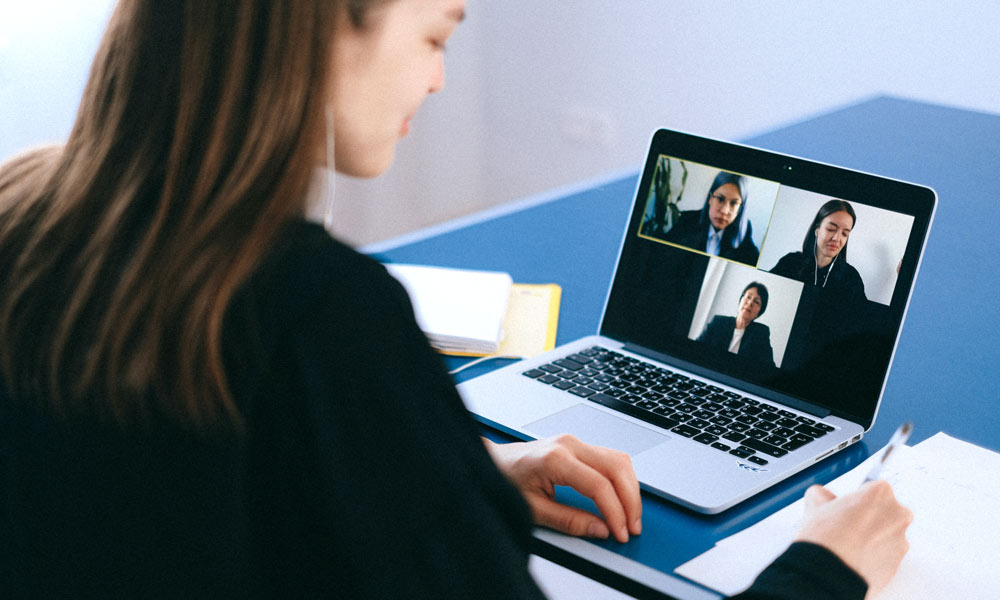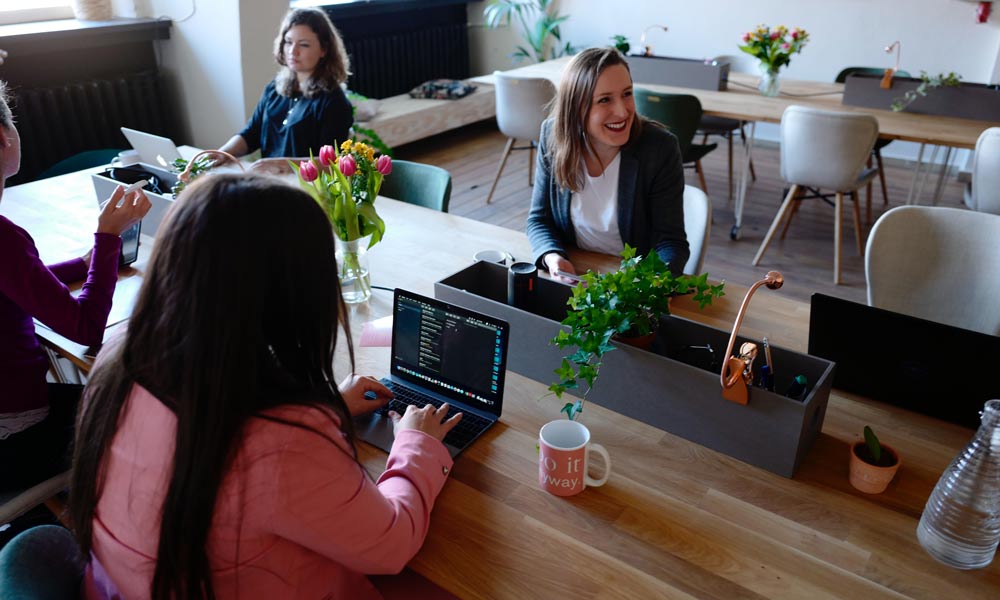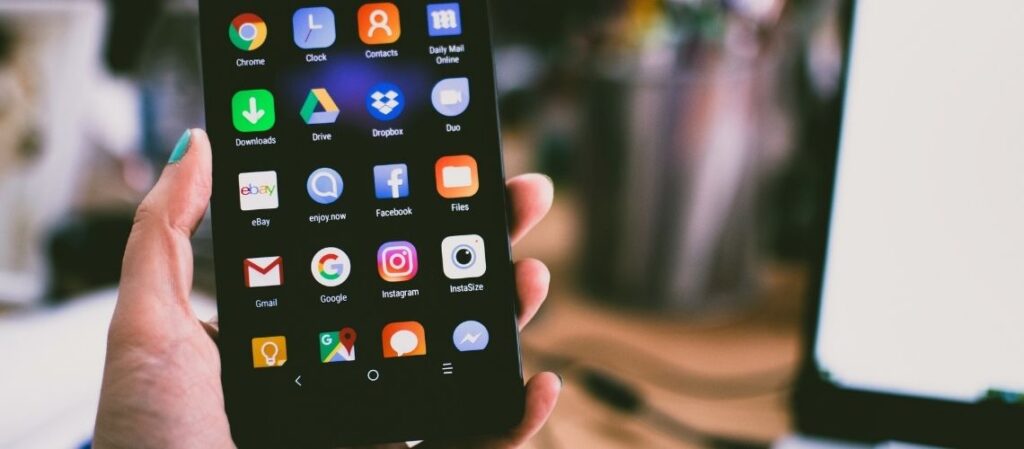2020: A year of the most monumental changes to have affected society for seventy years. It has left us all wondering what will the future of office work look like post-pandemic? Northstar supports companies large and small throughout the south-west and around the UK, which gives me the privilege of seeing how some of the incredible small businesses in the UK are innovating to capitalise on the new norm and adapt their office work.
Everyone is at home!
At Northstar, we found the demand for laptops completely outstripped supply, and prices rocketed as companies purchased increasingly high specification units as more popular specifications ran out. Docking stations, the device that allows you to connect a laptop to two large high-resolution screens, and a ‘proper’ keyboard and mouse, sold out several times. Enquiries about internet telephony were arriving daily. After three months or so, most of our customers had either purchased or repurposed some amount of equipment that allowed them to work from home. Many were enjoying the novelty.
However, at this point, I should acknowledge that for many, the mental health impact of difficult circumstances such as a lack of child care, job uncertainty and the sad loss of loved ones was severe. Our hearts go out to all those that have suffered.
Productivity has gone sideways!
As time went on, our customers reported that the productivity of work increased. A combination of increased individual focus and time saved on commuting benefited the work/life balance. For a while, the novelty masked other effects as everyone got to grips with video conferencing.
However, by the end of the second lockdown, managerial staff and employees reported that progress on the collective workload was slower. Many put this down to missing informal communications.
At Northstar, we noticed two things to explain this from our perspective.
Missed background conversation
Our staff were missing out on overhearing conversations. These are the moments where you are only vaguely aware of background conversation between others, whether they are in the room or speaking on the telephone. Usually, this presents information and allows for interruption and correction. Overhearing conversations is distracting to an extent but can increases quality and efficiency by reducing mistakes and creating more outcomes that are right the first time through collaboration. In an open office, our brains are filtering thousands of pieces of information into important or trivial without a single meeting. Simultaneously this also increases all-important relationships with colleagues by creating a shared experience.
Missed spontaneous conversation
Secondly, there was a lack of spontaneous conversation. Instead, we use more effort to write an email, pick up the phone or book or start a video conference. Whereas, in the same room, I often notice the staff spotting an opportunity to talk at a convenient moment or meeting someone by chance. Then, this could lead to a quick question or remark, which again weaves into the fabric of a functional and collaborative working environment. However, this opportunity is lost when working from home.
How do you remedy this?
It requires a superior brain to unravel the frequency and category of all these interactions and devise ways of replicating them equally or with greater efficiency than a physical gathering. Maybe the younger generation already has the skills of cohesion and collaboration without a physical meeting. But for now, the majority of managers are left with a deficit. The current most popular remedy is hybrid working, meaning working some days in the office and some at home. As a result, this method tries to make the most of the efficiency strengths of each.
What about video conferencing?
I am convinced that without video conferencing, many more businesses would have failed during this pandemic. Companies have found increasingly inventive ways to reach out to customers and staff. However, that can only go so far.
At Northstar, we trialled keeping open audio-only communications meetings going all day even when nothing was happening. In some ways, the gentle clatter of keys was comforting – I cannot imagine why, but during this pandemic, we take comfort where we can! However, this test proved to be very limited compared to being in the office. Mic and speaker technology needed to be of very high quality and software very clever to allow you to hear and speak at the same time without causing feedback. Also, staff tend to mute systems and turn off noise as speakers are more jarring than low-level ambient noise.
Unless you have an open video, you also miss facial expressions, which science tells us is a large part of communications. So although it is better than nothing, it is no substitute at this stage. Maybe virtual reality will fill that gap later.
So what will happen to office work?
Over our 23-year history, we have worked in rented and owned offices. We have also had staff working from home. The balance of this mix is likely to shift from here on. That makes me start to think about what kind of space I may want to occupy in future? Lots of our work is confidential, so we cannot have everyone looking over our shoulder or hearing conversations. Engineers are supporting sensitive systems and helping customers implement new technologies that are part of their intellectual property. So, an open space with loud conversations is not feasible for that kind of work. Also, our engineers speak to our admin staff thousands of times a day, like pilots and air traffic controllers. Constant communication is vital to reaching the destination with IT projects, fixing faults and selling the right equipment and software.
Hybrid home/ office work
So does that mean we are stuck with a single office? Not necessarily. Some home working and some time in the office could be possible for different tasks. For example, sales, marketing and some admin can easily accomplish tasks in shared spaces. Furthermore, if we limit ourselves to staff that live in the south-west, we miss out on a vast array of talent across the UK, so we cannot ignore other options in the long term.
Office work becomes hot desking
For renting, office space may be a flexible contract, with the office open one or two days a week could be an option. Imagine if all the available office space in Clevedon were available to rent on a single portal. You could enter the date, time and number of desks and see what was available at a low-cost day rate. This model is possible with a subscription to one of the national providers, but why not for small spaces in small towns too? Fast internet and secure access would be a must, of course, but this is easy to achieve. I expect there is a lot of wasted space out there that someone could put to good use.
The importance of social connection
Finally, there is the social factor. Goodness, it has been lonely during lockdown! The everyday interaction with others is vital to most. As a salesperson at heart, I miss meeting new people and listening to their passions and worries more than anything else that comes with office work. Whatever the new office working world looks like, that part cannot be missing. Imagine that there was flexible communal and private office space in every village and town. Now imagine a thriving local economy with restaurants, shops that cater near homes for all those that only commute one or two days a week. Maybe the ‘village’ (and by this, I also mean the small part of any city where people live) will be part of the new normal in a big way.
Who would have imagined that IT might do that?
For more information about how Northstar can help you navigate your IT during these uncertain times, contact us today.









